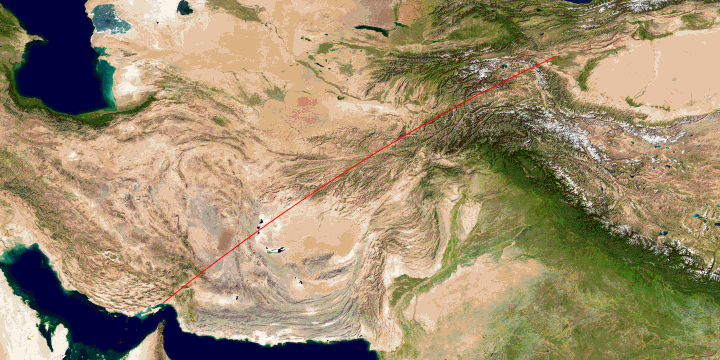China, Gwadar and Sea Lanes of Communication: ‘Economic Offence’ or ‘Active Defence’?
 The economic and energy benefits of access to Gwadar lie in the strategic value of its geography. Situated near the Strait of Hormuz, the Arabian Sea port offers China energy resource access and a trade pathway that bypasses the congested Malaccan Strait. The option of a direct land route into Western China lessens the vulnerability that comes with heavy reliance on the South East Asian sea rout The geographical advantages inherent in this lend support to China’s assertion that strategic intentions are focused on economic interests and energy planning. However, these perspectives assume that integral infrastructure developments needed at Gwadar are achievable. The history of official neglect and resulting disparity in the area has fostered insurgent unrest, which analysts cite as imperative to address before any progress can be undertaken. Rail and road link projects have been disrupted by separatist elements and the cost of using this port as a bypass would be unfeasible in the short term. Once a land connection is finalised the cost of ensuring security of transport via this link may also impact the economic viability of the option. For these reasons Gwadar requires a long-term commitment in order to achieve economic gain. Whilst a ‘plan first, plan ahead’ approach can offer justification for this investment, the difficulties associated with using Gwadar as a commercial port strengthen the argument that a military destiny, rather than an economic one, is intended. http://www.ipcs.org/article/china/china-gwadar-and-sea-lanes-of-communication-economic-offence-or-3823.html
The economic and energy benefits of access to Gwadar lie in the strategic value of its geography. Situated near the Strait of Hormuz, the Arabian Sea port offers China energy resource access and a trade pathway that bypasses the congested Malaccan Strait. The option of a direct land route into Western China lessens the vulnerability that comes with heavy reliance on the South East Asian sea rout The geographical advantages inherent in this lend support to China’s assertion that strategic intentions are focused on economic interests and energy planning. However, these perspectives assume that integral infrastructure developments needed at Gwadar are achievable. The history of official neglect and resulting disparity in the area has fostered insurgent unrest, which analysts cite as imperative to address before any progress can be undertaken. Rail and road link projects have been disrupted by separatist elements and the cost of using this port as a bypass would be unfeasible in the short term. Once a land connection is finalised the cost of ensuring security of transport via this link may also impact the economic viability of the option. For these reasons Gwadar requires a long-term commitment in order to achieve economic gain. Whilst a ‘plan first, plan ahead’ approach can offer justification for this investment, the difficulties associated with using Gwadar as a commercial port strengthen the argument that a military destiny, rather than an economic one, is intended. http://www.ipcs.org/article/china/china-gwadar-and-sea-lanes-of-communication-economic-offence-or-3823.html
No comments:
Post a Comment